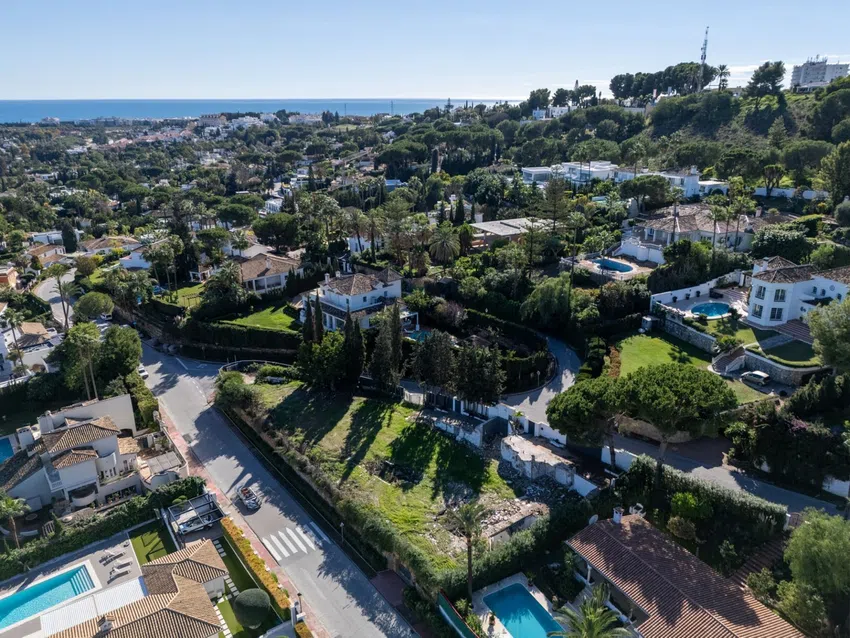Building your dream home in Spain begins with purchasing a plot of land that meets the requirements of your project. The plot is one of the key factors influencing the overall cost.
The expense of acquiring land goes beyond its price – it also includes taxes and additional fees. Here, we break down the taxes you’ll need to pay and their estimated costs.
Taxes
If you purchase land from a private individual, you must pay the Property Transfer Tax (ITP), which varies by autonomous community and ranges from 4% to 10%.
However, if the plot is bought from a company, you will be required to pay 21% VAT, along with Stamp Duty (IAJD by its acronym in Spanish), which also depends on the autonomous community and is typically between 0.5% and 1.5%.
Costs
People buying land must cover the following costs:
Property registry
Registering the property with the Land Registry ensures that the new ownership is legally recognised. This process must be completed at the registry office corresponding to the town or city where the property is located. While there is no legal deadline, it is highly recommended to complete the registration as soon as possible.
The cost depends on the value of the purchased land. The applicable percentages are:
| Land value | Percentage |
| Up to €6,010.12 | €24.04 fixed cost |
| Between €6,010.13 and €30,050.61 | 1.75% |
| Between €30,050.62 and €60,101.21 | 1.25% |
| Between €60,101.22 and €150,253.03 | 0.75% |
| Between €150,253.04 and €601,012.10 | 0.3% |
| Above €601,012.10 | 0.2% |
For example, if the land is priced at €100,000, the registration cost would be €750 (0.75%).
Notary
The sale must be formalised before a notary, who certifies the legal validity of the transaction. The buyer has the right to choose the notary. As for costs, notarial fees are regulated by state tariffs, typically ranging between 0.2% and 0.5% of the sale price. On average, notary and registry fees amount to approximately €1,000.
Administrative costs
Although it is not mandatory, having the services of a tax agency makes the operation and tax payment easier. The amount is usually around €300.
Lawyer fees
Many buyers choose to seek legal advice when purchasing property or land. Lawyers do not have fixed fees, but their charges typically range between 0.5% and 1% of the purchase price.
Other expenses associated with buying land
When purchasing land, it is crucial to ensure there are no legal issues that could obstruct future construction. Beyond understanding the initial costs, it is also essential to identify any potential hidden expenses that may arise during the process:
- Charges and debts: Financial obligations, such as outstanding mortgages, are transferred to the buyer. Therefore, it is essential to verify the legal status of the land through a nota simple from the Property Registry and negotiate the price accordingly if any charges exist.
- Town planning debts: The council can demand payment from the owner for pending town planning (streets, lighting, sanitation). Even if the land appears to be urbanised, it is necessary to confirm with the council if there are any debts or future developments that may affect the plot.
- Right of way: Restrictions, such as pipes or service connections, must be registered, as they may limit construction and generate extra costs if they require modifications.
- Disaggregated land: Land divided into larger plots may lack basic services, so it must be confirmed that they comply with municipal requirements and are correctly registered.
- Licensing restrictions: Some plots of land do not obtain building permits due to lack of town planning, non-compliance with regulations or basic services. Checking all of this beforehand with an architect and the council can make all the difference.
Procedures for buying land to build a house
Before purchasing a plot of land, it is advisable to conduct a thorough assessment, as there may be factors that could affect your project's viability. This can also provide leverage for negotiating the sale price:
- Check the owner's tax status: You should ensure that the owner is up to date with tax payments, such as the Property Tax (IBI). To verify this, request the most recent payment receipt or, if unavailable, visit the relevant council.
- Technical and legal analysis of the land: Consult an architect to assess factors such as the land’s surface area, buildability, location and other relevant urban and legal considerations.
- Geotechnical study: This helps determine the characteristics of the plot's subsoil and confirm whether it is suitable for construction.
- Check the urban classification: It is crucial to verify the land's classification, as this will determine its permissible use.
